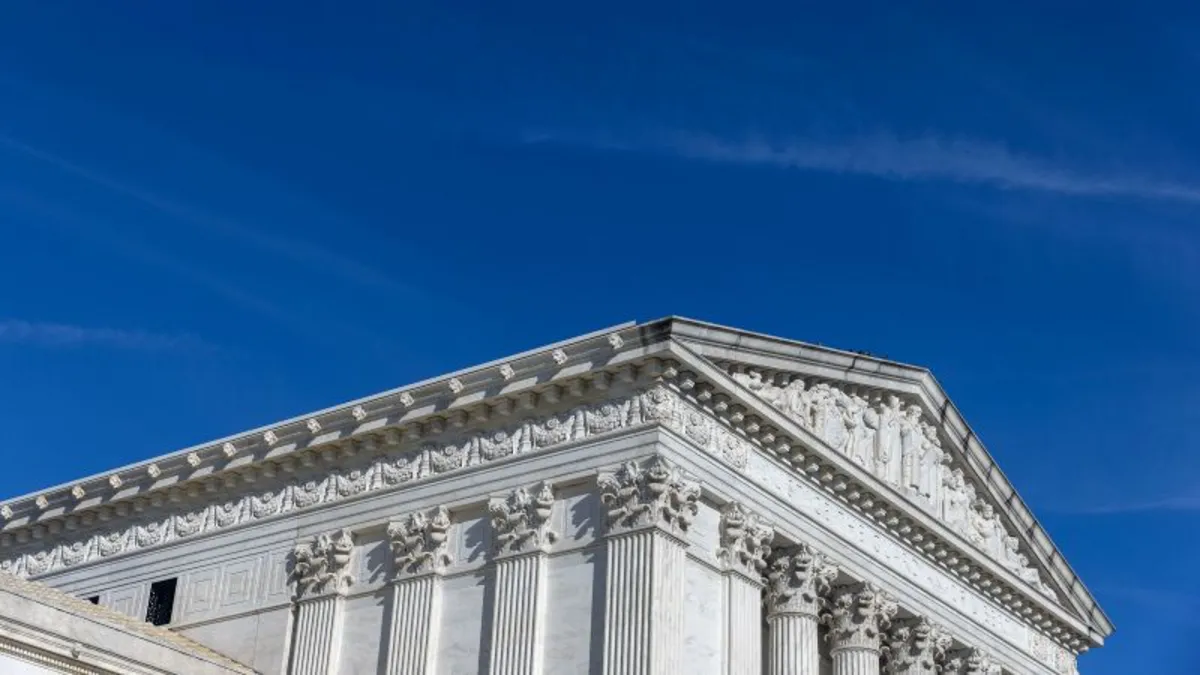
As the Supreme Court prepares to reopen its sessions, Chief Justice John Roberts recently emphasized the importance of the high court's summer hiatus. Speaking to an audience in Washington, he described this break as essential for the justices to manage the intense pressures and conflicts that often arise during the court's busy terms. “That break,” Roberts stated, “is critical to maintaining a level balance.” Now, as the justices return to their mahogany bench on Monday, they are set to embark on a momentous new term, following a summer filled with significant legal battles.
The past three months were anything but peaceful for the Supreme Court. The justices had to address numerous emergency cases linked to former President Donald Trump, which often resulted in sharply worded dissents reflecting more friction than relaxation. This upcoming term will see the court tackling even more high-stakes issues, including contentious political confrontations involving Trump, disputes surrounding transgender rights, and challenges that could jeopardize the integrity of the Voting Rights Act of 1965.
Polling data indicates a significant divide among the American public regarding the Supreme Court's actions. A recent Gallup poll revealed that while 79% of Republicans approve of the court's performance, only 14% of Democrats feel the same way. Irv Gornstein, the executive director of the Supreme Court Institute at Georgetown Law Center, cautioned that if the prevalent 6-3 ideological splits continue into major appeals this term, it could lead to one of the most polarizing terms in recent history.
The Supreme Court's last term concluded with a landmark decision that illustrated the contentious relationship between the court and Trump's administration. A 6-3 majority ruling effectively eliminated a long-standing method lower courts employed to temporarily block presidential policies. Justice Ketanji Brown Jackson, part of the liberal minority, criticized this conservative majority for cultivating a “culture of disdain for lower courts.” In contrast, Justice Amy Coney Barrett, who authored the majority opinion, rebuffed Jackson’s dissent, labeling it a “startling line of attack” unmoored from legal principles.
Looking ahead, the court will hear arguments on critical cases involving Trump’s authority to impose international tariffs, as well as challenges related to his dismissal of leaders at independent agencies such as the Federal Reserve. These cases present opportunities for the court to redefine the balance of power between the executive branch and independent governmental entities, potentially overturning precedents established during the Franklin D. Roosevelt era.
This upcoming term will also address significant issues related to transgender rights. Just one day after reconvening, the court will examine a Colorado law prohibiting “conversion therapy,” a practice widely discredited for its harmful effects. This challenge is being presented by a licensed counselor who argues that the law violates the First Amendment rights of free speech. Approximately 25 states have enacted similar bans, highlighting a growing trend against such practices.
Additionally, the court is set to consider whether states can prevent transgender students from participating in sports teams that align with their gender identity. This issue is particularly pressing, as it affects the rights of young athletes and their ability to compete. The justices will also revisit Louisiana's congressional redistricting, addressing claims of racial gerrymandering that could undermine protections for minority voters, a concern echoed by advocacy groups like the ACLU.
As the Supreme Court transitions into its regular docket, it will also manage a surge of emergency applications, many of which pertain to the Trump administration. Following its first set of arguments, the court will receive a request regarding limiting passport sex markers for transgender and nonbinary individuals, among other pressing issues. Since June, the Trump administration has filed eight emergency appeals, winning six, while President Joe Biden has had mixed results with his appeals.
Justice Jackson has candidly expressed concerns about this shift in jurisprudence, stating that the judicial landscape appears to favor the Trump administration disproportionately. The ongoing scrutiny and evolving dynamics of these cases may further intensify the Supreme Court’s challenges as it navigates a tumultuous political climate.
The Supreme Court’s new term promises to be one of significant legal and political intrigue, with issues ranging from presidential powers to civil rights. As the justices prepare to deliberate, the nation watches closely, aware that the outcomes could have profound implications for governance and individual rights across the United States.